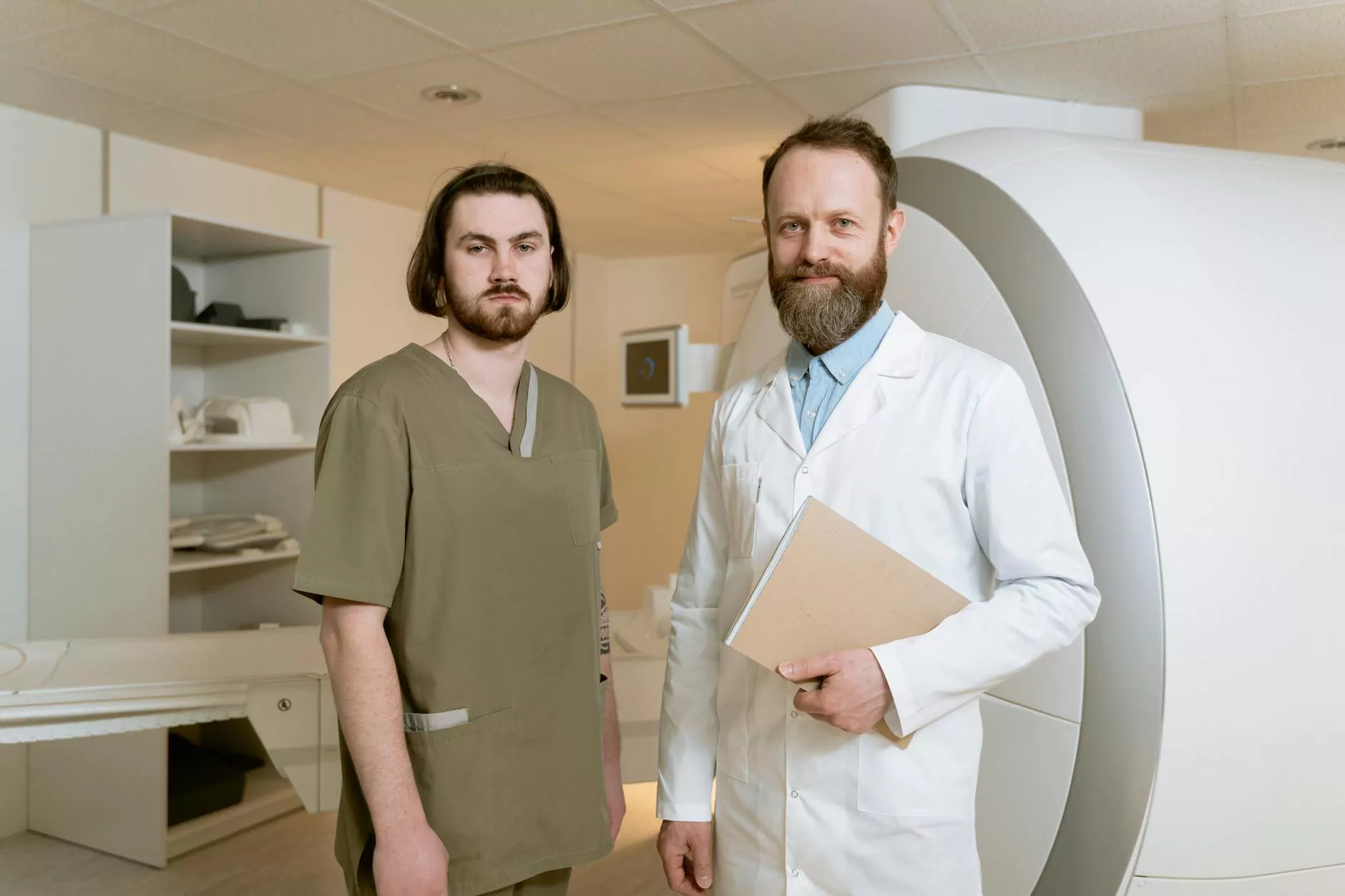Understanding MRI Services: A Comprehensive Guide to MRI Service Providers

In the realm of modern healthcare, MRI service providers play an integral role, offering critical diagnostic services that aid in the treatment and management of various medical conditions. An MRI, or magnetic resonance imaging, is a powerful tool used by healthcare professionals to create detailed images of the organs and tissues within the body. This non-invasive technology has revolutionized diagnostics, enabling clinicians to make informed decisions that enhance patient outcomes.
What is an MRI and How Does It Work?
Magnetic Resonance Imaging (MRI) utilizes powerful magnets, radio waves, and a computer to produce clear, detailed images of the body. Unlike X-rays or CT scans, MRIs do not use ionizing radiation, making them a safer option for patients. The process involves the following steps:
- Preparation: Patients are usually advised to avoid food or drink for a few hours before the scan. Additionally, they must inform the technician about any implants or metal objects in their body.
- The Procedure: The patient lies on a movable bed that slides into the MRI machine. As the MRI scanner creates the images, the patient may hear loud knocking or thumping sounds.
- Contrast Agents: In some cases, a contrast agent may be used to enhance the images further, allowing for clearer visualization of certain tissues.
- Post-Procedure: After the scan, patients can resume normal activities, and the images are analyzed by radiologists to provide diagnostic insights.
The Importance of MRI Service Providers
MRI service providers are essential in the healthcare landscape for several reasons:
- Accurate Diagnoses: The detailed images produced by MRI scans enable healthcare providers to accurately diagnose conditions such as tumors, brain disorders, and joint issues.
- Non-Invasive: MRIs are non-invasive, allowing for comprehensive imaging without the need for surgical procedures.
- Advanced Technology: Leading MRI service providers invest in state-of-the-art technology to ensure high-quality imaging and patient comfort.
- Expert Staff: Skilled technicians and radiologists are essential to the MRI process, from operating the machinery to interpreting the results accurately.
Choosing the Right MRI Service Provider
When searching for an MRI service provider, it's crucial to consider several factors to ensure you receive the best possible care:
1. Accreditation and Certification
Ensure that the MRI service provider is accredited by relevant bodies such as the American College of Radiology (ACR). This accreditation demonstrates a commitment to quality and safety standards.
2. Advanced Equipment
Verify whether the facility utilizes the latest MRI technology. Advanced machines can produce clearer images in shorter scan times, enhancing the patient's experience.
3. Experienced Staff
The expertise of the staff is paramount. Look for facilities with board-certified radiologists and experienced MRI technologists who understand the nuances of MRI imaging.
4. Patient Reviews
Researching patient reviews and testimonials can provide insight into the quality of care offered by the MRI service provider. Positive feedback often highlights a facility's commitment to patient comfort and satisfaction.
5. Accessibility and Location
Consider the geographical location of the MRI facility. Choosing a provider close to home can significantly enhance convenience for follow-up appointments and consultations.
The Role of MRI Service Providers in Different Medical Fields
MRI service providers are utilized across various medical disciplines, supporting the diagnosis and treatment of numerous conditions. Below are some key areas where MRI services are frequently employed:
1. Oncology
In cancer care, MRI scans are critical for detecting and monitoring tumors. They help oncologists assess the size and location of tumors, formulate treatment plans, and evaluate treatment effectiveness.
2. Neurology
Neurologists often rely on MRI scans to diagnose and manage conditions such as multiple sclerosis, strokes, and brain tumors. High-resolution imaging of the brain and spinal cord is essential for accurate diagnosis.
3. Orthopedics
Orthopedic specialists use MRI to evaluate injuries to bones, cartilage, and soft tissues. Conditions such as torn ligaments or herniated discs can be assessed with high detail, guiding treatment options.
4. Cardiology
Cardiac MRI provides vital information about the heart's structure and function, helping cardiologists diagnose congenital heart disease, assess myocardial viability, and evaluate cardiac masses.
Preparing for Your MRI Appointment
Preparation for an MRI can significantly impact the quality of the procedure and the comfort of the patient. Here are some tips for a smooth MRI experience:
1. Communicate with Your Provider
Discuss any concerns or queries with your doctor or the MRI service provider before the appointment. Understanding what to expect can alleviate anxiety.
2. Dress Appropriately
Wear comfortable clothing without metal fasteners. Most facilities provide gowns, ensuring that anything that could interfere with the imaging is removed.
3. Arrive Early
Arriving early allows for paperwork to be completed and any last-minute questions to be addressed, ensuring a stress-free experience.
4. Follow Pre-Scan Instructions
If instructed to refrain from eating or drinking, be sure to follow these guidelines. Your provider may have specific recommendations based on your individual situation.
What to Expect During an MRI Scan
Understanding the process can help ease any apprehensions. Here’s what typically happens during an MRI scan:
1. Initial Check-in
Upon arrival, you will check in and complete any necessary paperwork. The technician will review your medical history and confirm that it is safe for you to undergo the scan.
2. Preparation for the Scan
You will be given a gown to change into and asked to remove all metal objects, including jewelry, eyeglasses, and hairpins. If an intravenous contrast agent is required, the technician will explain the procedure.
3. Undergoing the MRI
As you lie on the examination table, the technician will position you to ensure the targeted area is centered in the magnetic field. You will then be moved into the MRI machine.
During the scan, you will hear various sounds, which are perfectly normal. The technician will be in a separate room but can communicate with you through a speaker. It’s crucial to remain still during the scan to obtain the best images.
4. After the Scan
The duration of the scan can vary depending on the area being examined, typically lasting between 30 minutes to an hour. After the procedure, you can usually resume your regular activities unless otherwise advised.
The Future of MRI Services
The field of medical imaging is constantly evolving, and MRI technology is no exception. Advancements in technology are leading to:
1. Higher Resolution Imaging
Ongoing research aims to enhance image quality and resolution, enabling earlier detection of diseases.
2. Functional MRI
Functional MRI (fMRI) is becoming increasingly popular, allowing for the visualization of brain activity by measuring changes in blood flow. This has implications for both neuroscience and psychology.
3. MRI in Personalized Medicine
As healthcare moves toward personalized medicine, MRI plays a crucial role in tailoring patient treatment plans based on precise imaging results.
Conclusion
MRI service providers are instrumental in modern healthcare, contributing to accurate diagnostics and improved patient care. By understanding what MRI services entail and knowing how to prepare for an MRI, patients can take charge of their health journey. If you are in search of reliable and high-quality MRI services, look no further than echomagnetservices.com, where patient care and advanced diagnostic solutions come together.









